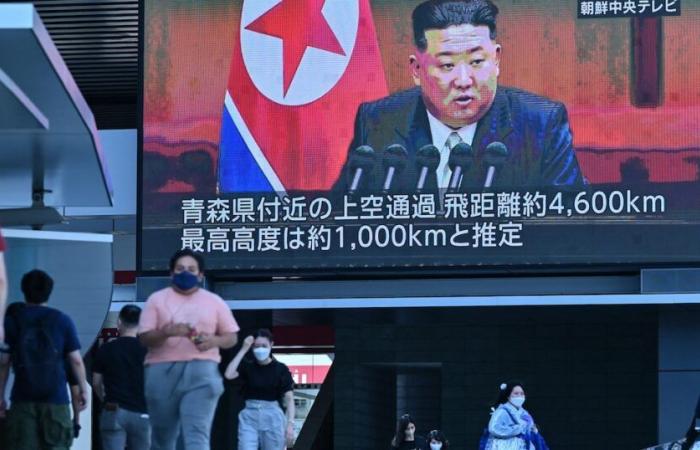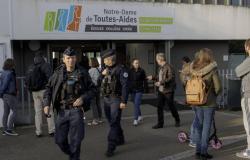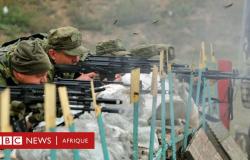As part of the ever closer alliance between Pyongyang and Moscow, Kim Jong-Un intensified his support for the Kremlin, offering Vladimir Putin what Russia insistently claims: arms. According to a recent estimate of the South Korean intelligence (NIS) intelligence, North Korea has sent around 15,000 workers to Russia, most of them under the cover of student visas, in direct violation of UN sanctions targeting Pyongyang. The figure is spectacular: the number of North Koreans entered in Russia has multiplied by 12 compared to the previous year, according to the American weekly Newsweek. So far concentrated in the Russian Far East, especially in Siberia and border regions, these workers could soon join Moscow and other major cities, according to hopes expressed by several officials from Russian industry.
As reminded The Wall Street Journal, Russia faces an acute demographic crisis, amplified by the war in Ukraine, started in February 2022. Hundreds of thousands of Russian soldiers have died on the front, according to Western estimates, while part of the active population fled the country to escape mobilization. The Russian Labor Ministry estimates that the labor deficit could reach 2.4 million by 2030, against 1.5 million today. In this context, North Korean workers are a boon for the Kremlin: not very demanding, very supervised and, above all, silent.
Read also: Robert Person: “Any diplomatic solution between Russia and Ukraine is today illusory”
But their presence constitutes a blatant violation of the resolutions of the UN Security Council, which since 2017 have prohibit the employment of North Korean labor abroad, in order to cut funding to the Kim Jong-un. Already last February, Newsweek Reported that several thousand North Korean workers had been deployed in the construction, forestry or mines sectors in Russia. According to the Korea Heraldthese workers would receive around $ 800 a month, part of which would be confiscated by the North Korean government.
12,000 North Korean soldiers sent to Ukraine
Beyond civil workforce, Pyongyang confirmed a few days ago that he had provided direct military support to Russia. During a briefing in the South Korean Parliament on April 30, MP Lee Seong-Kweun revealed that 12,000 North Korean soldiers were sent to Ukraine in 2024, followed by 3,000 others in 2025 to compensate for Russian losses. These troops would notably have played a key role in the reconquest of the Koursk strategic region, in the south of Russia, occupied by the Ukrainian forces. According to South Korean information, around 600 North Korean soldiers were killed in combat, and nearly 2,000 injured repatriated between January and March by air and rail.
Read also: Claude Blanchemaison, ex-ambassador to Moscow: “Putin will also have to make territorial concessions”
These soldiers would currently be kept in isolation in Pyongyang and in other sensitive areas of the country, while the bodies of the dead have been cremated in Russia, the ashes returned to North Korea to avoid any media coverage. Note that a temporary withdrawal of the North Korean forces of the Koursk region had been observed at the end of January 2025 after having undergone heavy losses, according to Ukrainian and American anonymous officials cited by the New York Times. But from February 7, the Ukrainian president Volodymyr Zelensky confirmed their return to the front, proof of the now organic link between the Russian and North Korean armies.
Through this growing cooperation, Pyongyang and Moscow are becoming more and more openly open from the multilateral framework. For Kim Jong-un, this alliance is a board of economic and diplomatic salvation. For Vladimir Putin, a timely support in a war of wear and tear that exhausts the Russian army and economy.







